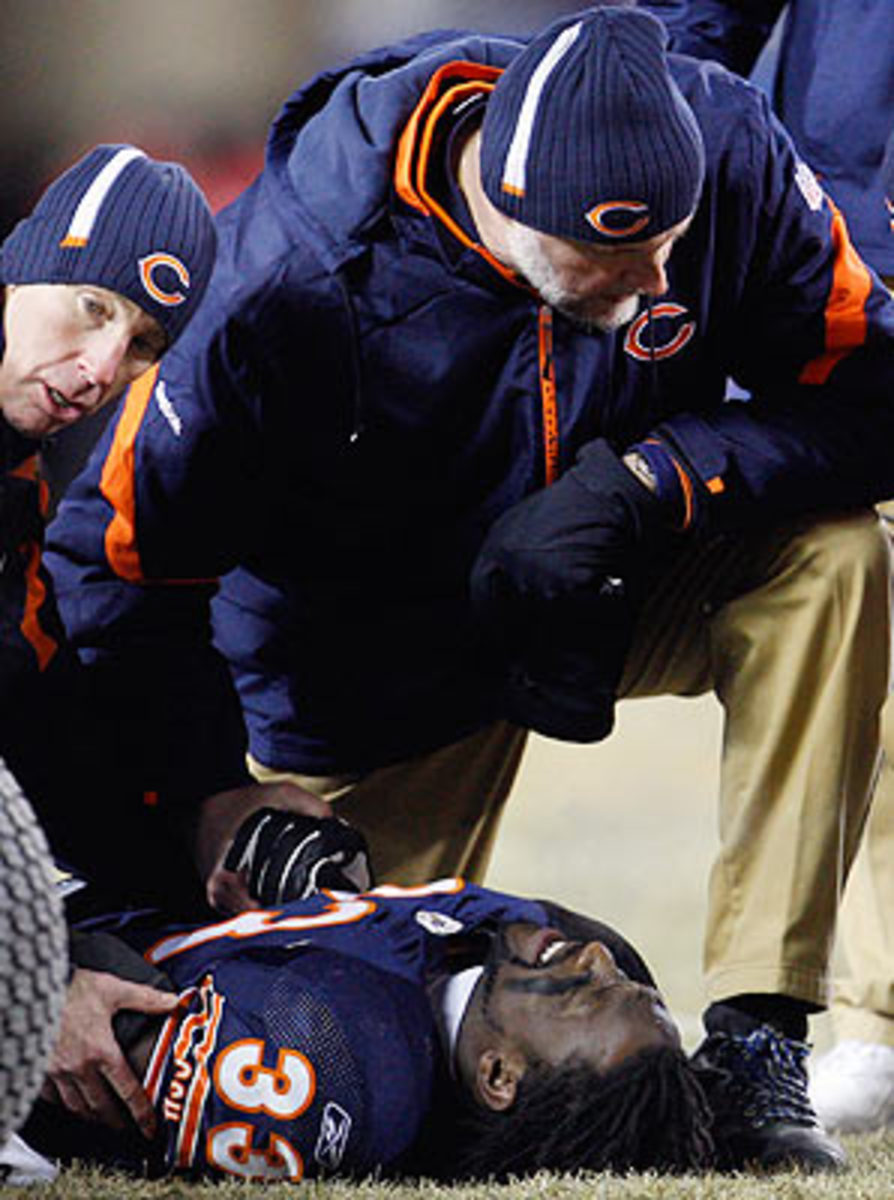Long-term injury risks may mean less kids turning to football
And then, just as quickly, he let go of me. "Hurt?" he asked, rhetorically. I nodded, ruefully. "Well," he said, "sometimes, without medication, that's how much I've hurt all day long."
Effectively, Dave Pear played some games in his five-year NFL career with what might even have been a broken neck. That's what football players are supposed to do. Play hurt. Go back in the game. And because of that, so many of them have spent years debilitated, in pain. Only now, at last are the people in the sport beginning to acknowledge what has been obvious: football is a gladiator entertainment. Indeed, let us give credit to NFL Commissioner Roger Goodell. Yes, it took him awhile, but in the past month he has finally begun to take the league out of the same kind of denial that baseball suffered so long vis a vis steroids.
Goodell has issued new, more stringent rules with regard to concussions and urged former players to will their brains to a study at Boston University, which is seeking to determine how much does the sport scramble many minds.
Invariably, however, when any attempts to improve football safety are suggested, a cry goes up that the spoilsports are out to destroy the very essence of the game. Hey, it's supposed to be a cruel sport. And, yes, it not only is, but as the players get bigger and faster, the collisions increase in their raw manpower. Moreover, in a real way, the focus of the action has moved, inexorably, up the body. What was originally football became more legball, then armball and now, essentially: headball.
Don't worry, fans -- none of this is going to endanger the spectator sport. Indeed, if anything, football becomes more popular, more vicariously exciting, as it becomes more dangerous. No, the greater cultural question is at the American grassroots: whether the new enlightenment -- which will include yet another Congressional hearing on Monday -- will affect the way the sport is viewed for children. I can remember when educated, middle-class parents let their children smoke -- and that's simply not accepted today. Will the same sort of people now conclude that they don't want their sons going out for football?
Far more boys play football in high school than any other sport -- well more than a million each autumn. For many Americans, it's a rite of passage for their sons to be on the football team. Nobody says that you learn to be a man playing baseball, say, or basketball. But that has always been a romantic part of the attraction of American football. But as the risks of football injury and long-term disability become more exposed will many parents decide that it's better for their boys to play a safer but less glamorous sport? What price manly?





